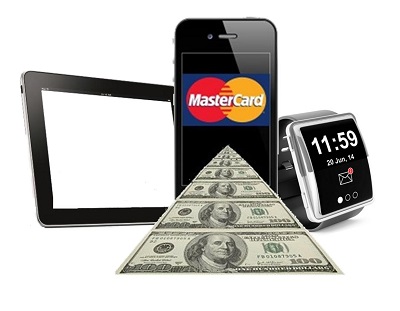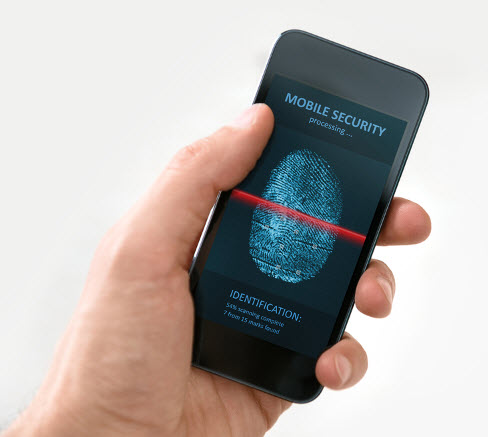This will make it possible for devices, wearable technology and accessories to be used to pay for purchases.
MasterCard has now introduced a new program that has been designed to bring the brand’s mobile payments to a broader spectrum of different types of electronic consumer products.
These include wearables, fashion, automotive, and a range of other categories that haven’t yet been invented.
The program is meant to make it possible for mobile payments to use whatever gadget or device is most convenient for them, so that they can complete mobile payments using the highest available level of security. The launch of the program has come with a number of big name participants that include General Motors, as well as celebrity designer Adam Selman, as well as the Ringly smart jewelry company and the wearable technology firm, Nymi, in addition to the TrackR Bluetooth locator brand. These are only some of the names that have already joined in to take part in the program through their products.
The Money 20/20 conference in Las Vegas played host to the original display of the mobile payments prototypes.
 This step forward in payment technology and hyper-connectivity is a large one for the Internet of Things (IoT). This will help to make it possible for practically every device used by consumers – from major appliances to vehicles and wearables – to be linked by way of the internet. This will completely revolutionize the way consumers interact and the way they complete various transactions.
This step forward in payment technology and hyper-connectivity is a large one for the Internet of Things (IoT). This will help to make it possible for practically every device used by consumers – from major appliances to vehicles and wearables – to be linked by way of the internet. This will completely revolutionize the way consumers interact and the way they complete various transactions.
Cisco has predicted that by the year 2020, there will be 50 billion connected devices. MasterCard is clearly hoping to play a major part in this technological advancement as it establishes this mobile payments program as a foundation of the IoT. The program, itself, is designed to be an additional branch from the MasterCard Digital Enablement Service (MDES) as well as its Digital Enablement Express program (also known as simply “Express”). By bringing MDES and Express together, it would mean that virtually any kind of device could be securely payment-enabled and linked to a MasterCard account so that it can be used to complete transactions to purchase products and services.
Biometrics have succeeded in making mobile commerce more secure
Biometric technology is expected to have a major impact on the mobile payments space. A new report from Goode Intelligence has noted that this technology has helped making mobile commerce much more secure than it had been in the past. This technology involves the use of biological information, such as a fingerprint, to protect a mobile device. Many of the latest smartphones that have been released this year incorporate biometric technology in some way, especially those that have mobile payments capabilities.
Report predicts that biometrics will secure $5.6 trillion in mobile payments by 2020
According to the report from Goode Intelligence, biomteircs may be responsible for securing more than $5.6 trillion in mobile payments by 2020. This technology will be used to authorize some 226 billion transactions, with each transaction coming in at $25 on average. Consumers have shown a great deal of interest in mobile commerce, as it represents a more convenient way for them to get their shopping done. One of the problems that consumers have had with mobile payments, however, is a lack of security.
Security solutions ensure that consumers will be protected as they make mobile transactions
 Mobile commerce is a very attractive market, especially among malicious groups that would be interested in exploiting the financial information of consumers. Security concerns had kept many consumers away from the mobile commerce space, which has lead several organizations involved therein to look for adequate solutions to this problem. Biometric technology has proven to be the solution that these organizations have been looking for, as the technology has proven to keep consumer information safe in an effective manner.
Mobile commerce is a very attractive market, especially among malicious groups that would be interested in exploiting the financial information of consumers. Security concerns had kept many consumers away from the mobile commerce space, which has lead several organizations involved therein to look for adequate solutions to this problem. Biometric technology has proven to be the solution that these organizations have been looking for, as the technology has proven to keep consumer information safe in an effective manner.
Tokenization and biometric technology are gaining ground among payments firms
Biometrics are not the only way to keep consumer information sector, of course. Tokenization is also becoming quite popular in the mobile payments space. This involves replacing consumer financial information with digital tokens, which are unique for every transaction. Both Visa and MasterCard are using this practice in order to ensure that those participating in mobile payments are adequately protected from malicious groups.
 This step forward in payment technology and hyper-connectivity is a large one for the Internet of Things (IoT). This will help to make it possible for practically every device used by consumers – from major appliances to vehicles and wearables – to be linked by way of the internet. This will completely revolutionize the way consumers interact and the way they complete various transactions.
This step forward in payment technology and hyper-connectivity is a large one for the Internet of Things (IoT). This will help to make it possible for practically every device used by consumers – from major appliances to vehicles and wearables – to be linked by way of the internet. This will completely revolutionize the way consumers interact and the way they complete various transactions.
 Mobile commerce is a very attractive market, especially among malicious groups that would be interested in exploiting the financial information of consumers. Security concerns had kept many consumers away from the mobile commerce space, which has lead several organizations involved therein to look for adequate solutions to this problem. Biometric technology has proven to be the solution that these organizations have been looking for, as the technology has proven to keep consumer information safe in an effective manner.
Mobile commerce is a very attractive market, especially among malicious groups that would be interested in exploiting the financial information of consumers. Security concerns had kept many consumers away from the mobile commerce space, which has lead several organizations involved therein to look for adequate solutions to this problem. Biometric technology has proven to be the solution that these organizations have been looking for, as the technology has proven to keep consumer information safe in an effective manner.